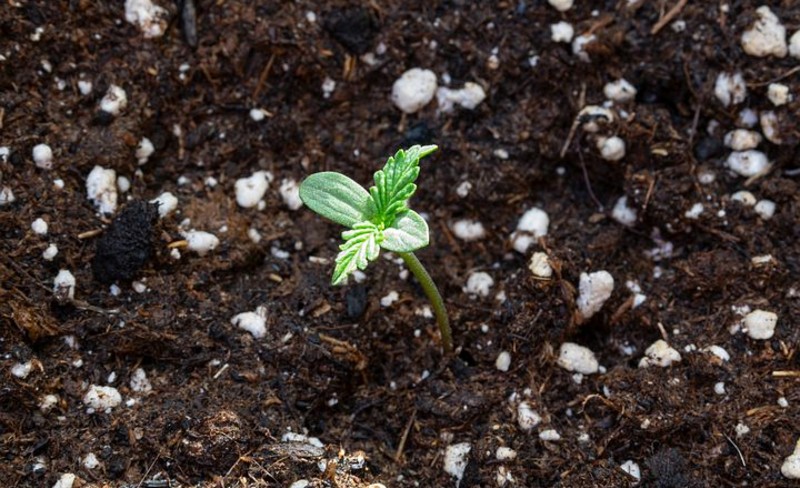
Around the world, hemp has a varying degree of allowance in how it’s grown or ingested.
The UK, however, is unique in how it handles hemp.
In this article we will explore the ironic and limited ways hemp can be sourced via the UK’s farming industry.
Specifically how this affects British hemp farmers, in what they can do to earn a living so we can show their plight.
The Home Office
The Home Office, the main decision making department in the UK government is murky in what it permits with regards to growing hemp.
In 2018, it gave a number of hemp growing licenses to a handful of farmers who could afford them.
However the produce sourced from these plants were to be strictly for research and medicinal purposes.
That’s right, hemp derived THC is legal in the UK for medical purposes, although this is rarely advertised in the UK or around the globe.
Medicinal THC hemp flowers are allowed to be ingested via prescription for those with a select form of epilepsy, those undergoing chemotherapy, or MS borne muscle spasms.
The medical hemp flower, or marijuana, comes in the form of medicines that are sold by pharmaceutical companies.
Such as Sativex, a THC rich oral spray.
Although hemp farmers may be open to business for these companies, their produce is restricted to being sold solely in England, not other parts of the UK.
Not to mention big pharma usually source their hemp-derived THC from European countries.
This is the first hurdle for UK hemp farmers — the international competition arising from healthcare giants using global brands, instead of domestic hemp farmers, who have spent thousands on hemp growing licenses.
Furthermore the hemp licenses that allow for the growing of industrial hemp are usually only suitable for the nutraceutical industry due to the lack of THC.
However, new obstacles in recent months have battered the success of British hemp farmers pursuing this avenue.
For instance, the Home Office in conjunction with the Food Standards Agency are looking to curb the THC allowances of hemp plants for consumption to 0.05%.
What does this mean for British hemp farmers?
Well, in 2018 the threshold was 0.2% THC for industrial hemp products.
However, in the dawn of 2021, the new THC thresholds means the initial growth of millions of acres of hemp plants will go to waste.
Given that for every two acres of hemp planted in 2018, the growing fee was £800 so you can imagine the financial plight of British hemp farmers in this position!
Forced Revocations of Hemp Fields
Another drawback for hemp farmers are the automatic revocations and destruction of hemp fields for no reason whatsoever.
Hempen was one such company whose farmers were impacted.
This company was made to destroy £200,000 worth of hemp plants, as the Home Office after three years of permitting the farming of hemp suddenly reversed their decision.
The incident provoked outcry in the media who stated it as unjust and a violation of farmer and worker rights, who had been growing a perfectly legal substance until forced revocation without any formal notice.
The truth is that the constant flux of the laws means that British hemp farmers cannot keep up with the changes, as they are rarely officially published in time to be implemented.
Not to mention there is much backtracking within the laws.
For example, the novel food status of hemp products means that some farmers were beginning preparation to grow hemp without any THC.
But this was soon changed as the nature of this decision came into question during coronavirus.
This meant that the work done to start yielding THC free hemp was wasted and this likely ate into the funds of farmers.
Subsequently it seems that British hemp farmers are being attacked from all ends.
That said, some farmers look to diversify the types of hemp products they create from their hemp plants.
This innovation could be a new opportunity for hemp farmers, however this isn’t always the case.
Belittling Innovation

One thing hemp farmers and their partners in business can do is look to bring forth hemp in different forms through innovation.
For example via CBD infused products like Turmeric infused CBD, or other Ayurvedic Indian mixtures.
Not to mention CBD sprays, patches and smokable low THC hemp flowers.
However, these are all food supplements, and the money pool of this industry is significantly lower than that of the pharmaceutical industry.
Therefore farmers, many times those selling their own CBD Oil as food supplements from their own hemp plant stock, cannot innovate as much as their big competitors in pharma.
This lessens the chances of them innovating anything too ingenious, such as top of the line CBD sprays, that big pharma already employs.
To make matters worse, the licensing for such nano-tech products for medicinal value like CBD sprays, that rely on droplets sprayed into the mouth to circulate around the body, are costly and take a long time to authorize.
Therefore medicinal hemp outlets in the UK look elsewhere to source CBD in this form. This then becomes a missed opportunity for hemp farmers to expand and grow.
What are the solutions?
It seems that British hemp farmers are at a huge disadvantage.
How can we make the situation better?
One way is by relying on domestic produce as a source of hemp.
This would allow British hemp farmers to become the go-to solution for companies and the healthcare system for all things hemp or CBD.
On the other hand, the global hemp market gives many jobs for many people, some of whom are sales, marketing, research, or accounting people in the UK already.
So the circumstances become even more complicated as the global companies supplying hemp in the UK give jobs to other British people, who also share the plight of British hemp farmers in retaining their jobs during a difficult coronavirus climate.
Another very obvious solution would be rallying for the Home Office to halt all forced destruction of hemp fields that farmers rely on for their livelihood.
However, this usually falls on deaf ears even when brought up by major British newspapers.
The end result is a bleak outlook for hemp farmers in the UK as global demand for food supplement style hemp products plummet and farmers come under more scrutiny in how they grow hemp.
On a more positive note, we hope this article from All Round CBD for Cannabis & Tech Today is the first push for international recognition of the plight of British hemp farmers.
Author
-
Shyam Kotecha is passionate about the legal aspects of Hemp policy and the constantly changing nature of how Hemp is seen in Europe. As he sells CBD Oil in the UK (All Round CBD) he's already at the forefront of the implications to business owners on the continent and therefore looks to accurately write on their experiences with the law.





